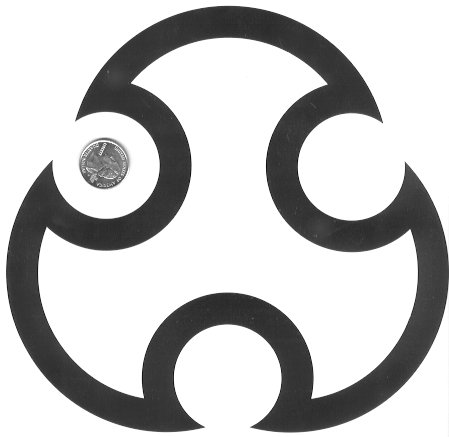The Monty Hall Problem
Today, we learn not to turn our back on information. The University of Houston's College of Engineering presents this series about the machines that make our civilization run, and the people whose ingenuity created them.
I've been running into the Monty Hall Problem lately. I suspect that many of you know about it. It came to my attention the other day when I ran into a colleague from the math department. She told me about it and left me scoffing in disbelief.
I should've known about the problem, since it goes back to the old TV show, Let's Make a Deal. Host Monty Hall would offer a contestant three doors. One had a prize behind it. If the contestant guessed the correct door, he would win the prize. But, before the door that he chose was opened, Monty Hall (who knew where the prize was) would say, "Of the two remaining doors, I'll open this one, which has no prize behind it." Then Hall would add, "Now, would you like to change your guess?" The contestant could either decide that the first guess was correct or switch to the other unopened door.
"The contestant should switch," said my mathematician friend. "Why?" I asked. "Because the probability of getting the prize will rise from one chance in three to two out of three."
A couple of really strange issues lurk here. First of all, there is the logic of probability. Second, we're trained from childhood that it's good to be decisive -- to be resolute. It strikes us as wishy-washy to change our minds.
Let's put the matter of decisiveness aside and look at probability. Our instinct says there's now a fifty-fifty chance of finding the prize behind either remaining door. Why switch? It seems preposterous that the probability of the prize's being behind the other unopened door should double after Hall opens that third door.
But the likelihood of the prize's being where you first thought it was is still one in three. That was true before Hall opened that other door, and it remains so. The chance that the prize was behind one of the other two doors was two-thirds, and it also remains so. But that two-thirds chance has now been given to the single remaining door. The contestant absolutely does need to switch choices.
This riddle has a point that lies just beyond our line of sight. It warns us that information is good in ways we don't immediately see. When Hall opens that door, he gives us information that serves us in unexpected ways.
That's how probability theory serves us. There's almost always more information in the facts before us than we realize. We tend to be unaware of how much information is being condensed, all the time, within our telephone and computer systems. It's done by the use of incredibly sophisticated statistical theory. Every shred of information is being wrung out and used to the hilt.
On the one hand, we cry out to brush the Monty Hall problem off as "lying with statistics." But our electronic systems would break down without that sort of thinking. The Monty Hall Problem is a powerful reminder that information really does gain the prize behind the door -- when we know how to use it.
I'm John Lienhard, at the University of Houston, where we're interested in the way inventive minds work.
(Theme music)
My thanks to both Barbara Keyfitz and Martin Golubitsky, UH Math Department, for their counsel.
The reader who is unconvinced might want to look at one of the excellent web sites that turn up when one searches for the "Monty Hall Problem." Several of these allow one to test the result empirically by playing the game several times in rapid succession. One might want to look at the excellent mathematical explanation of the problem by D. P. Bertsekas and John N. Tsitsiklis, Introduction to Probability. Belmont, MA: Athena Scientific, 2002, Section 1.3.
And finally, Aiden Keefe writes to point out that all this applies only if Monty Hall offers the choice every time. If he offers the choice only when the contestant had already chosen incorrectly, he is then doing the contestant no favor.
